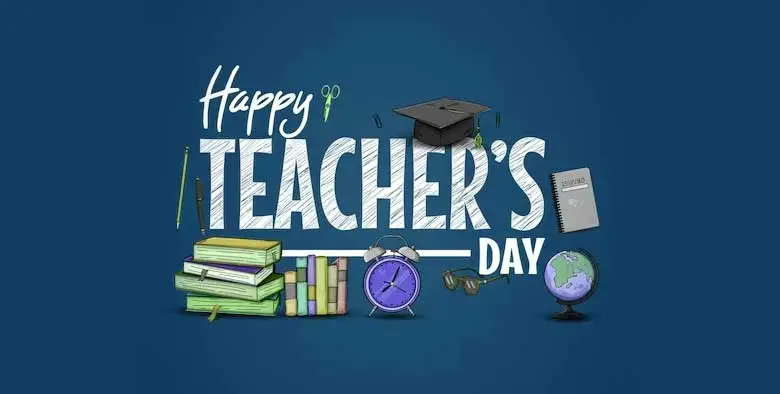How to Write a Decent Term paper
Writing a term paper may be a daunting work. When students deal with academic papers they can be jaded and exhausted. But, luckily, you will find some tricks on how to write a term paper below. You also can get term paper help online at any time.
Take a look at the Syllabus
Professors almost always provide specific written guidelines for length, focus, format etc. For each paper they assign. They must pay the graders major fees if they don’t. We won't tell them the requirements. Ask! Or maybe we were just too busy and forgot about it. These requirements could vary from semester-to-semester. Did you have a chance to read the syllabus before? You should read it again.
Select the Right Topic
Pick the right topic. When you're done with your research and writing, your topic might have become boring. Ask any graduate student who just completed a dissertation. You've made a mistake by making an already boring assignment seem more interesting.
Reduce the Scope of your Topic
Students often have trouble narrowing their focus and wasting great ideas. Try narrowing down a portion of your topic and exploring it in greater detail. You might consider cloning Elvis if the topic of cloning is too vast for a five page paper. You shouldn't write fifteen pages about cloning Elvis. Keep the idea within the given space and be concise. I would rather have a paper saying a lot about little than one that only says a few things about a lot.
My Topic Is Too Small
Use the generalization to other related topics such as cloning human embryos or animals, unexpected social problems, technical aspects of Cloning, moral and religious issues, cloning my girlfriend/boyfriend, etc. Keep your focus on the main point all the time. Or else, all the related topics you explore might look like window dressing that is added to make the paper longer. Profs are able to smell fluff up to a mile away. A sixth sense or some obscure super power. Your first draft should be a summary of your thoughts. You can then edit it or add to it as necessary.
You can organize your thoughts in a good outline
The process of lining up is hard work. However, I would classify it as a necessary evil. However, it can be a great help in the early stages. It forces you to think about what you want to write about your topic. This can help you to see where you need to spend your research time and identify weaknesses in your approach. To help you get started, use it in your first draft. You can also use it in your final draft to review the organization of your paragraphs. Give it a try. It won't hurt...much.
Take the time to research your topic. Is that the big building housing all the books? That's the library. Make it your friend. Even better, get to know your librarians. A professional staff is essential to any library. They are trained to be friendly, helpful, and bright, and will help you find the right information. Unfortunately librarians are just humans, and they work long, thankless hours for very little pay. It is worth your patience to help them. You should remember that the majority of interfaces you interact with aren’t librarians. Instead, they are students, clerical employees, or other people who could be pulled into filling the long hours at the firing line. Befriending a helpful and competent reference librarian is a good idea. You will find the right person to help you navigate the road to graduation.
Where's the beef?
A term paper should have 1-3 references per page. This is a good rule of thumb. This means that a page should contain approximately 10-15 references for every ten pages. Although many papers have more pages, others may only have ten. If your paper has fewer pages, it is likely that you did not spend enough time in the library. A variety of sources is better. Papers should include essays, books, journals articles, and/or magazines. Except for actual data, magazines and the internet should not account for more than one-third of your sources. Your argument won't tremble if it is based solely on Newsweeks.
Be balanced with your sources
You should use multiple sources when conducting your research. These could include but not be limited to books, magazine articles and journal articles (really important magazines), as well reference books and the internet. You should avoid reading too many magazine articles or newspaper articles. Even though magazines such as Newsweek and Time have well-written, focused articles, they often contain unsupported opinions. They are also more likely to make a stir than actually reveal the truth. The government documents collection should not be ignored. The government documents collection is the best for raw data and spirited opinion. Your tax dollars go to fund a lot of research. The results of all that research end up in government documents at the library. A library's collection of documents from the state can also prove to be an invaluable resource for specific topics such as local environmental problems.
No More Paper Cuttings from the Card Catalog
The majority of university libraries today have all their collections online. Every university library has its very own database for journals and books. Check the online catalog to find out what's currently available. It's usually easy to dial into from your PC at home. It is a good idea to get those library books out and to copy the journal articles as soon as possible. Otherwise, you might find that a professor has taken your only copy of the best source. Or a bozo has carefully cut out all articles on your topic (which, strangely, was also the topic for thirty students in the last semester).
What is a Keyword Search and why should I care?
It is easy to find a specific author or title in an online library or database. However, most times, you will have a fuzzy idea of what you are looking for. That's why keyword searches can be so useful. Each library may have at most one keyword-searchable index of journals and magazines. You might even find a special index that covers your particular subject. You can use them. Use the words closest to your topic. You might be able to come up with synonyms or slang terms that will help you get the job done. You might find something that is directly related to the topic. It's common to accumulate way too many things because in our rush to get everything online we have indexed everything to death. Searching for alligators will yield everything from wildlife to recipes. Before you send the surfer to search for the prize, make sure you have read the search screen for any online index or catalog. You should also not ignore internet search engines such Google (www.google.com), and Dogpile.com. Ingenta Uncover is a favorite of mine (check the list for the main library's online databases). It allows me to keyword-search a vast list of sources (including many that aren't in the library), scan individual journal titles, and (for a small fee) let me order photocopies online or have their table o f contents regularly delivered directly to my email. It's a good start. Good morning.
These are the top tips to help you find your fire
You can use the search terms AND OR and NOT to find your keywords. OR can be used in order to create a pool likely hits (desert, sweets or candy). You can use AND to combine two terms and get only hits that include both terms. It narrows down your results such as: (desert sweets or candy or chocolate). Some indexes allow you to use NOT to filter out certain categories. For example: [(desert sweets or candy or chocolate) NOT cake. The majority of online indexes allow you to use Boolean searching.
Yet another in a series of Hot Library Tips
Truncate your search terms. You can do this by removing the last letter from your search term and adding a "wildcard", which will say "this plus any variation" such as plural forms. So psych* would also be searched for psychiatry and psychotherapy. However, it could also be used to search for psychotic, psychbabble, or psychosomatic terms, so be cautious. Every system has a different "wildcard" character (usually a *). A "wild card" character is a character that can be used to delimit a keyword.
Not every library has every book, journal or issue of every magazine. Learn about the sources that aren't available locally but may be of value to your paper. Through the library's Inter-library Loan department, you can request a copy of any book and/or journal article. Ask at the reference/information desk about this service. There are different fees and rules. You may have to pay photocopy fees. But remember, these ILL transactions can take a long time. Sometimes it can take several weeks before you get the material that you need from another library. As more faculty and students discover they need this service, the speed of the process slows down. Imagine how much of your tuition went to building the library staff. Sending in your requests early will ensure that you have all the resources you need to complete your paper once you are ready.
You can drag yourself into the bookstacks
Whatever source you choose, make a list and copy down the library catalog number, etc. as you go. Then, take your heavy books back to the copiers. You'll be joining a line of people who have somehow figured out that they need to do the exact same thing you did. You can get ahead of the inevitable crowd. Many term papers for all classes end up being due around the same hour. It's almost a conspiracy. It's like a conspiracy.
Ask the Prof for Help. What do you have to lose?
Kate Turabian's A Manual for Writers has a comprehensive guide to citation and format. You can find copies in the library. The campus bookstore usually stocks them. Also, make sure to check the textbook section as you might need it for certain classes. It's a simplified version of the Chicago Style Manual (University of Chicago Press). The expanded version will likely be found on the reference shelves in the library.
Neatness does count - Spelling, grammar and punctuation will all be taken into consideration when grading your paper. Writing papers is supposed to teach you how to organize your thoughts and to express them in a clear, coherent manner. You should make sure that page numbers are included and that you check for "widows, orphans", lines that have become stranded on the top and bottom of the page. Each word processor comes with a spell-checker. You can use it in your final draft.
The Elements of Style, by Strunk & White, is highly recommended as a general guide to grammar, style, and composition. This little book is available at most bookstores and in libraries. I highly recommend it. There are also many etext versions available on the web, like the one at
http://www.bartleby.com/141/index.html. This little volume can be a great resource if your grammar and writing skills are lacking.
You should back up your ideas as well as your files. Many of us, even junior faculty members who are opinionated, lack the authority necessary to back up our ideas on all subjects. This is why it's important to research the topic and to gather expert opinions, as well hard data, to support or challenge those opinions. It is important to clearly reference any substantial information in your paper. It doesn't matter if you borrowed the information from another source. Direct quotations, however, are encouraged and allowed as long they are referenced.
Write That Cite Right. Turabian's style book will give you many examples of how "cite" or reference every type of material that you can drag into your paper. This includes internet sources. By the way, depending upon your topic, you can have a conversation with an authority on your topic by phone or face. This will make your professor's job easier and all the minor mistakes in your paper will disappear.
Edit, Edit Edit, Edit. Did I say edit? Well, do it again. Rub that mud puppy till it shines. You will want it to shine with authority, logic and information. THEN, hand it in. It's okay to give it back, all marked up and re-edited. It's all about trying. Plus, I respect genuine effort, even when it's a little hesitant.
Plagiarism is a Bad Idea
Be aware that if you get tempted, any prof can easily search the paper mills. Also, as trained professionals, they can often smell the rat when there is a dead one in the stack.
Plagiarism usually results in an F and is reported to the Honor Board. Plagiarism refers to stealing other people's ideas and making them your own. It's not only dishonest but also a deprives one of the opportunities to develop writing and research skills which will benefit them throughout their lives, at work and in school. Writing skills are a big advantage when applying for jobs. This is your chance to improve your writing skills in a setting that does not limit your future income. A good research report always includes a reference to the source of the information. The reader (and the professor) will be able to identify the sources, who they were consulted on the subject, their views, and when they spoke.
Make backups of your work
You should have at least two copies (zip disks, floppies) of your work in addition to the one on your hard drive. I keep two active copies of my work on my hard disk: one that I save every few minutes and one that I regularly update. A floppy backup copy I keep is updated every fifteen to twenty minutes. Change the settings of your word processor to save your work in an automatic file. This can be found in the menu under "Options", or "Preferences". This small trick has saved me hours of work and time. I also keep a second floppy copy, which I update about once per week. The second copy I keep in a separate place, so I don't lose my work if the whole city is destroyed by Godzilla and Rodan. Don't be afraid.
OK, Be really paranoid! Backup your backups. As you print the final draft, assume that the hurricane will knock off the power and take out your only copy. Alfred E. Neumann's immortal words, "just because someone follows you doesn't mean you're paranoid." A corrupted master file meant that I lost the entire chapter of my book, and all the backups that I had made were lost. I was fortunate enough to have a copy of the chapter and I was able to type the earlier version. I also recovered most of my work. As your draft nears completion, print it. This is easier to edit, and may save your bacon.
Write From the Heart
Your paper should reflect you, for better or worse. Let your emotions show if the topic is of sufficient importance to you to spend considerable time researching and writing. Anyone can take a bunch of photocopied articles and put together a paper. This is a labor for love. Well OK, sincere affection. It doesn't matter. It doesn't matter how you try to get involved, but you must endure it. Surprisingly, your opinions are also important. Your opinion is the most important aspect of the paper. If you don't really care about your topic, I'll have trouble getting excited about it once I'm forced to read your paper. If your paper doesn't have the swing it needs, it won't be worth much.













